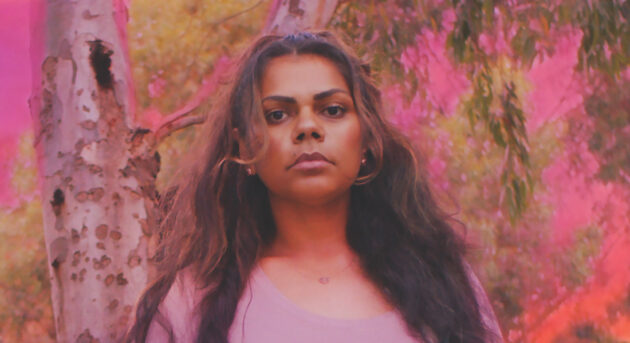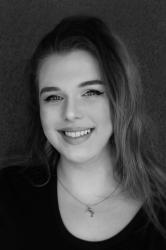Carissa Lee chats NGARNGK: GIVER OF LIFE
Meaning ‘giver of life’ in the Nyoongar language, Ngarngk: Giver of Life is an exploration of black motherhood.
The writing debut of Nyoongar writer NazAree Dickerson, who is also directing and producing the show, this matriarchal story champions women and the sacrifices they are willing to make for their family. We follow Missy, her mum Sally, and Nan Cherie as they maneuver through a world that has dismissed them for so long, challenging the authority in order to heal.
Ngarngk is premiering as part of the Yirramboi festival, Australia’s only First Nations-lead arts festival. A biannual event, Yirramboi features over 100 events from over 250 creatives, celebrating and championing First Nations history and life through art, design, film, talks, theatre, music, and dance.

Starring in Ngarngk is Carissa Lee, a Noongar actor and writer born on Wemba-Wemba country. Since graduating from Flinders Drama Centre in 2010, she has featured in many stage and film productions. Carissa has performed on stage with the Melbourne Theatre Company, Malthouse Theatre, La Mama, and State Theatre Company of South Australia. Her favourite roles to-date include Caryl Churchill’s Top Girls, Andrew Bovell’s Holy Day, and portraying Charles Manson in Robert Reid’s The Bacchae. Carissa has also appeared in film, music videos, and TV productions. Her TV roles include Channel Nine’s House Husbands and ABC’s Sammy J Show. Carissa has also been a part of political campaigns: Treaty Victoria’s Deadly Questions and VACCA’s It’s What You Don’t See series.
How does it feel to be a part of the Yirramboi Festival?
Carissa: I’m really excited. It’s the first time I’ve gotten to experience the Festival as a performer. So many friends are in shows, so there’s a really beautiful collective buzz.
How is Ngarngk different from past productions you have been a part of?
Carissa: When I’ve done shows around Aboriginal themes in the past, they end up feeling a bit more personal, and there’s a sense of cultural responsibility. Ngarngk is especially significant with that. Because this story has been created by NazAree Dickerson, a long time friend, and it’s about our mob. It’s been such a journey to learn more about what it means to be Noongar, and how we navigate a world that tries to deny us our right to cultural practices and knowledge.
Why do you think it’s important to be staging shows like Ngarngk?
Carissa: We need more stories about Blak women, and to also bring attention to the systemic racism against First Nations people that still occurs in hospitals, child protection services, and the justice system. This story also focuses on the necessity to keep cultural practices going, because we’ve had so much taken from us already. I think non-Indigenous audiences will really benefit from seeing shows like Ngarngk, and Maryanne Sam’s show Coconut Woman, because you can see the cultural nuances of Indigenous people and their families.
What has been the most challenging part of the process?
Carissa: It’s been only in the last few years that I’ve fully accepted my identity as a Noongar woman, because my brother and I haven’t had the opportunity to learn about our mob. This project has made me want to know more, because we’ve essentially had our culture kept from us for so long. It’s great to take steps to learn more, but with intergenerational trauma involved, it’s a heavy process.
And the most exciting?
Carissa: Kristel Kickett, NazAree and I have worked on this play at different stages over the last couple of years, and it’s been amazing to see this story grow. I also feel so lucky to get to work with such wonderful people. Also working with an all-Indigenous company has been fun, where we can have our blackfulla humour and yarns. Life for mob is complex, and knowing that other people are carrying similar cultural loads, certainly brings a sense of cultural safety to rehearsals.
Why should audiences come and see the show?
Carissa: There has been a lot of recent talk about First Nations people navigating ways to birth on Country, and I think this play gives a huge insight into why that’s such a significant cultural practice. It also gives the audience a chance to see what life can be like for Indigenous families, and the lead-up to prepping for a baby can be different for us than it is for non-Indigenous people. There’s an opportunity to learn, but to also laugh with us. Because despite it all, we’re playing some really fun characters.
Ngarngk: Giver of Life plays at La Mama Theatre as part of the Yirramboi Festival.
For tickets and more information, visit the La Mama website.




